This DIY Hummingbird Swing Is Adorable & So Easy To Make! Here's How To Give Migrating Birds a Safe Spot To Rest & Relax
Give migrating hummingbirds a safe spot to rest and refuel on their 4,000 mile journey. This easy DIY hummingbird swing is just what they need!

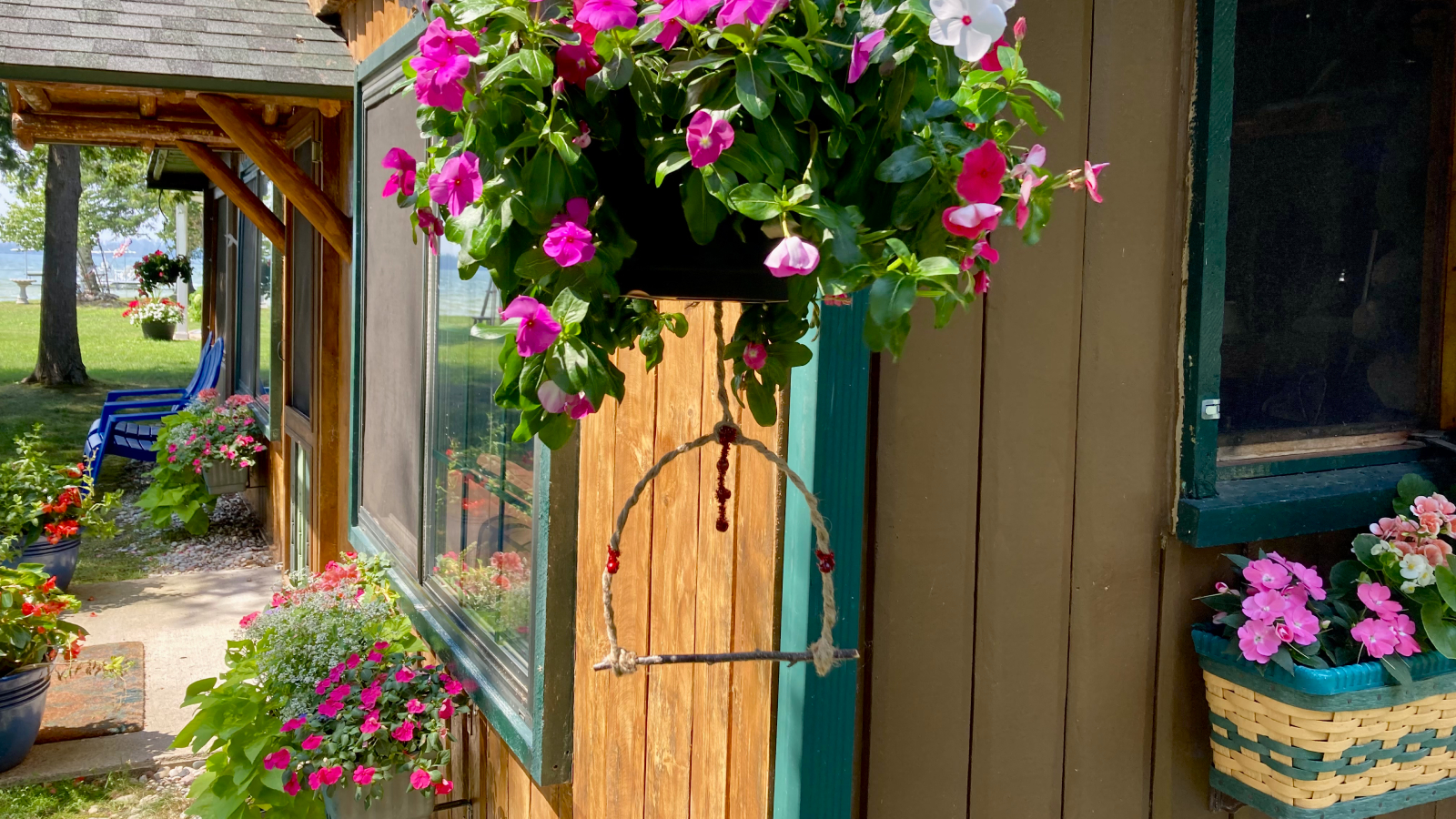
Sign up for the Gardening Know How newsletter today and receive a free copy of our e-book "How to Grow Delicious Tomatoes".
You are now subscribed
Your newsletter sign-up was successful
Who doesn’t love a good garden swing? They can provide a calm, relaxing spot to rest and take a moment just for yourself. But humans aren’t the only ones who enjoy a seat to gently swing and unwind. Hummingbirds love them, too.
Hummingbird swings (I know, how cute!) are a great way to attract hummingbirds to your garden. These adorable swings provide birds with a safe and comfortable perch where they can rest, which is especially important during the hummingbird migration that happens every fall.
If hummingbirds already frequent your garden or you want to try to attract and aid these tiny pollinators on their big journey this fall, a DIY hummingbird swing is a wonderful way to do just that. I’ll walk you through how I did this simple garden craft in about 15 minutes with just a handful of items I picked up at the dollar store. If you’re not the crafting type, I’ll also share some of the cutest hummingbird swings you can find on Amazon for just a few bucks.
What Is a Hummingbird Swing?
Hummingbird swings are just what they sound like. They’re miniature hummingbird perches where these incredible pollinators can take a much needed break during their migration or just hang out after sipping on some nectar-rich flowers in your garden.
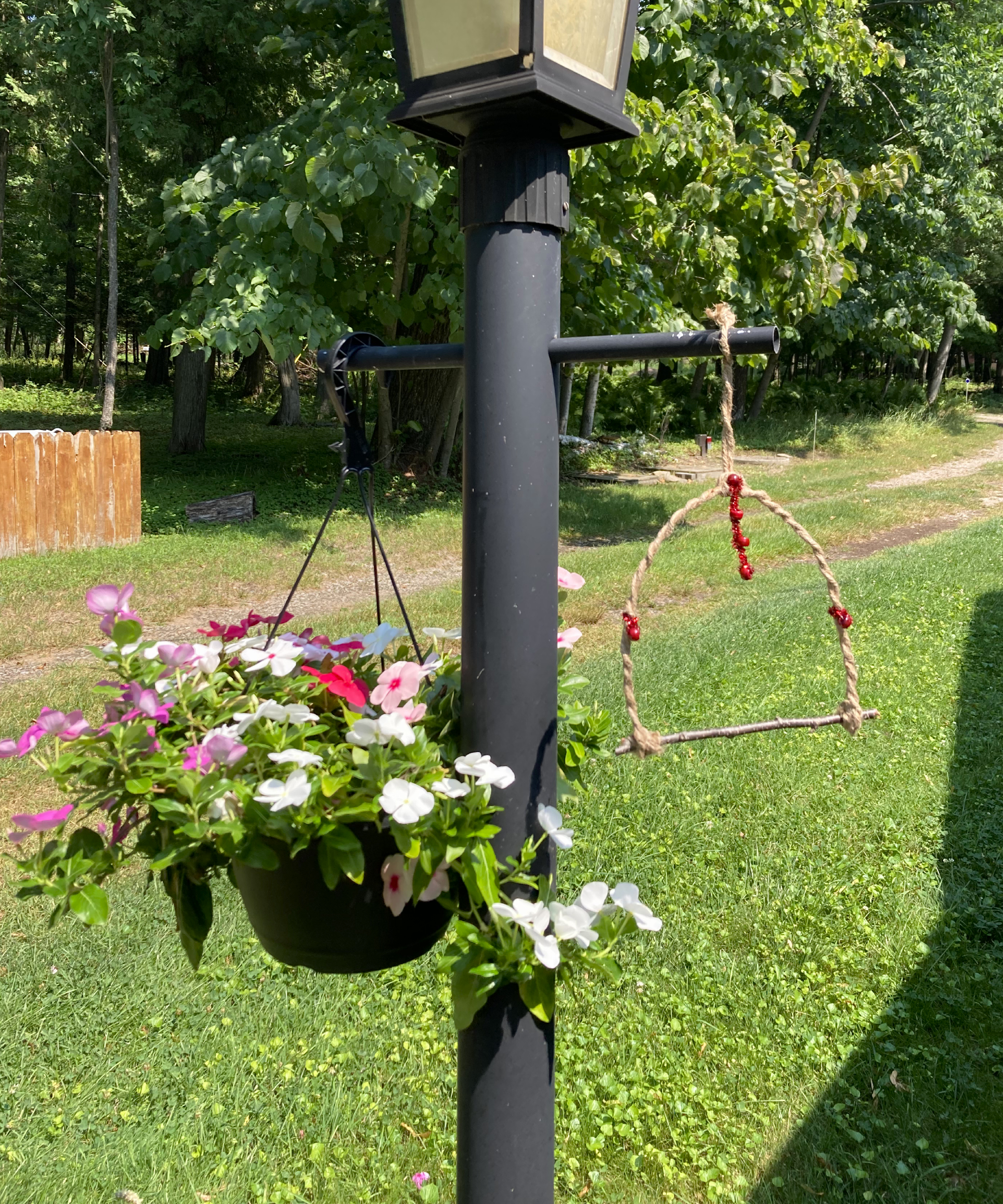
How To Make a DIY Hummingbird Swing
Making a DIY hummingbird swing is easy enough for anyone to do. It only takes about 15 minutes to make and you can get everything that you need from the craft store, Amazon, or the dollar store (like I did).
What You Will Need
- Craft wire, 18 gauge or thicker
- Red beads
- Stick or dowel rod, 6 inches (15cm) long
- Red pipe cleaners (optional)
- Wire cutters or scissors
- Needle nose pliers (optional, but recommended)
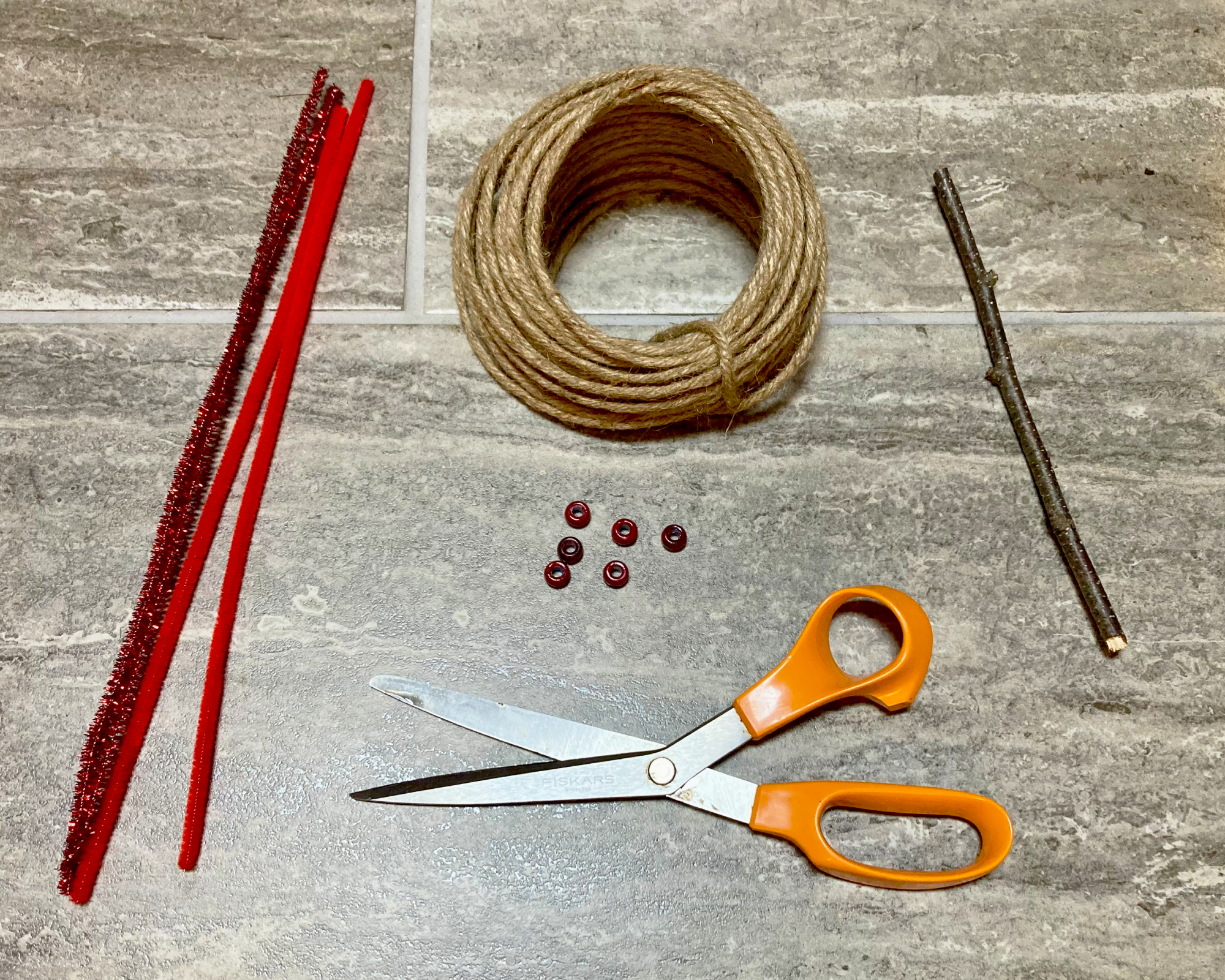
1. Cut the Wire
After you’ve gathered your materials, cut a 30 inch (76.2 cm) length of 18 gauge wire. I found a jute twine covered wire at the store, but you can use any thick craft wire. This copper wire from Amazon is a great choice because it’s easy to bend and will look pretty hanging in the garden.
If you use a thicker gauge of wire, you can cut a 15 inch (38 cm) length of wire instead. You just want the wire to be stiff enough that when you bend it in the next step, it will hold its shape.
Sign up for the Gardening Know How newsletter today and receive a free copy of our e-book "How to Grow Delicious Tomatoes".
2. Bend & Twist the Wire
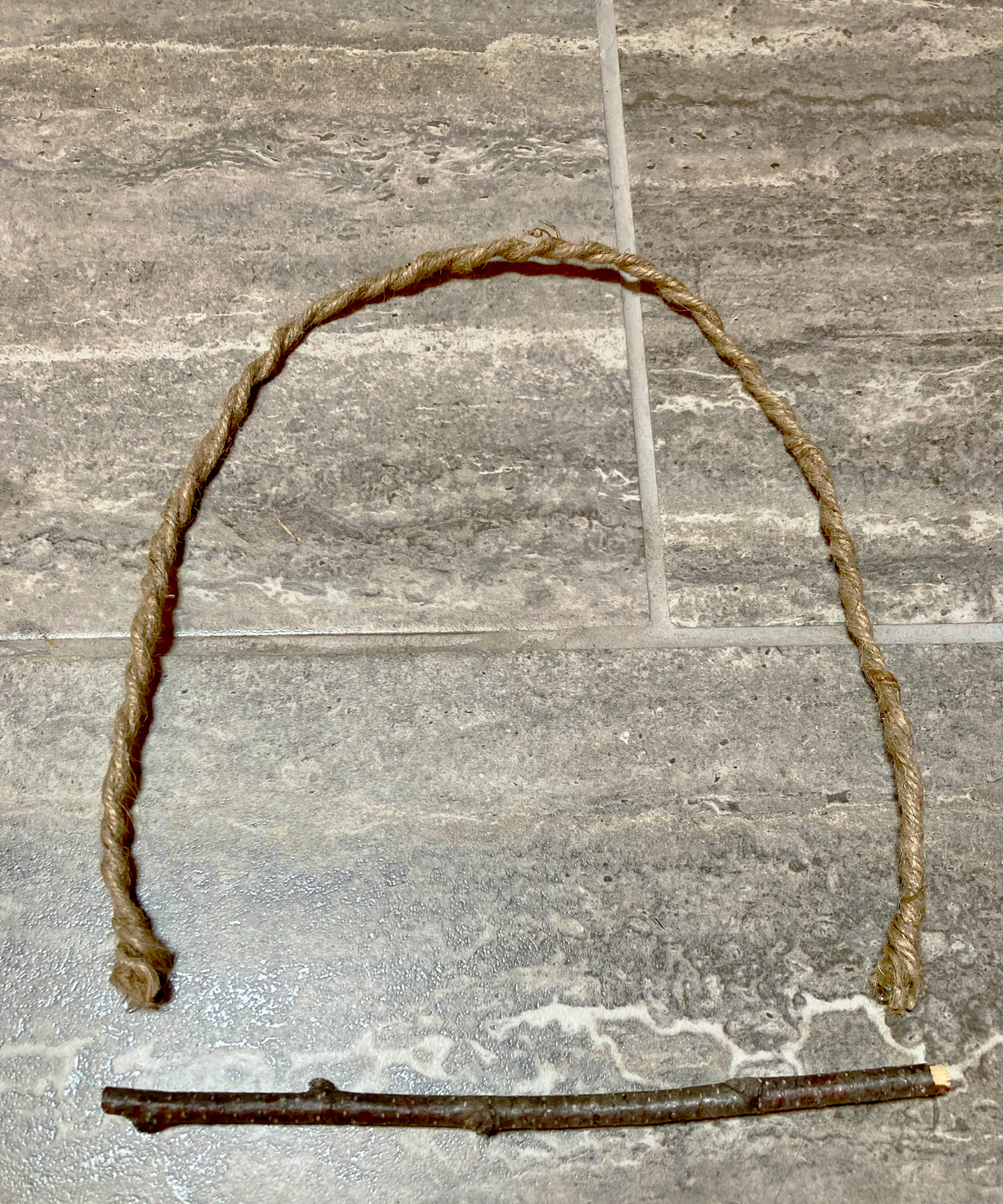
If you chose a thick wire that can hold its shape, skip this step and move onto step three. If not, fold your wire in half and twist it to form a stronger cord.
You can thread some of the red beads onto your wire as you twist. The red will attract hummingbirds and add a beautiful colorful element to your swing. If your wire is too thick for the beads to fit, keep twisting and I will show you how to attach them later.
Next, bend your twisted wire into a “U” shape so the ends are as far apart as the width of your stick.
3. Attach the Wire to the Stick
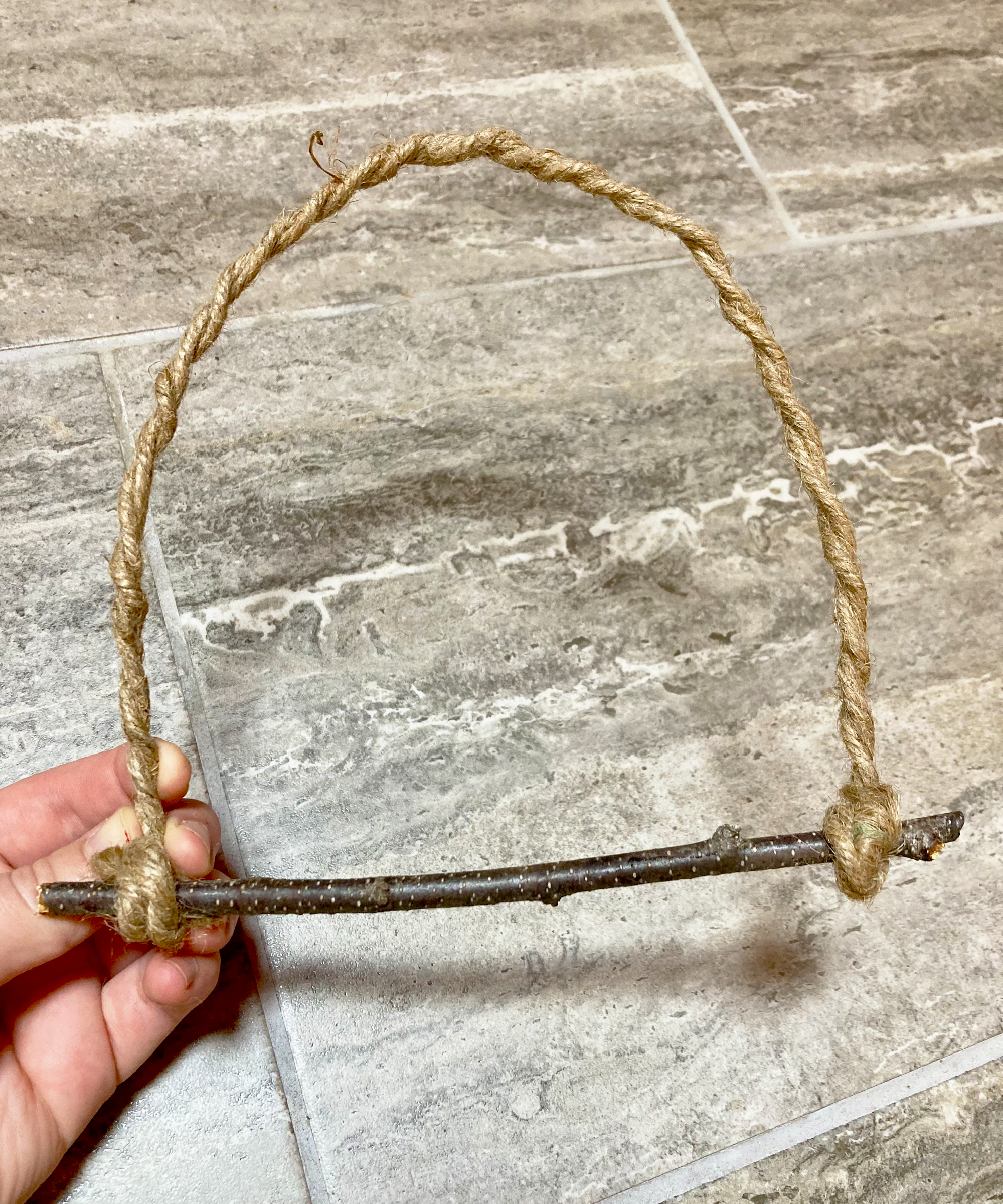
Use your needle nose pliers or carefully your hands to wrap the ends of the wire around the ends of your stick or dowel rod. The cut ends of the wire can be sharp, so I recommend using pliers like these ones from Amazon that have a built-in wire cutter.
Wrap the wire tightly around the stick so that it won’t fall out when your swing is outside blowing in the wind and rain.
4. Add a Touch of Red
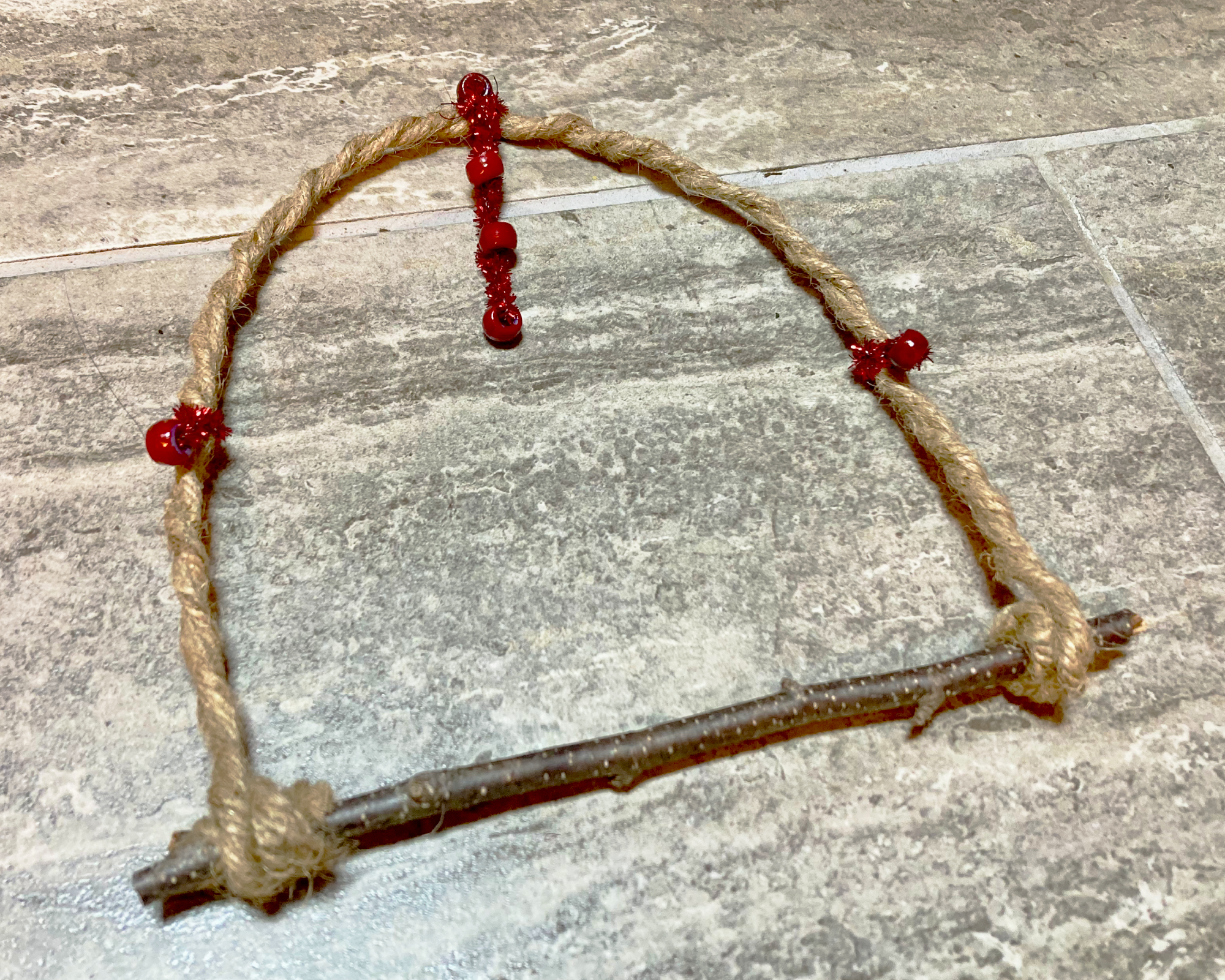
Hummingbirds love the color red, so the next step is to add some colorful flourishes to your swing to help attract tiny winged visitors to your garden. I used a red pipe cleaner to attach red beads to my swing. There are tons of different red beads you can buy on Amazon, so explore and find the perfect one to match your garden style.
Cut the pipe cleaner into 3 inch (7.6 cm) lengths and thread them through the beads. Twist the beaded pipe cleaners onto your swing. You can use a pipe cleaner or another 12 inch (30 cm) length of wire to create a hanger at the top of your swing.
5. Hang Your Hummingbird Swing
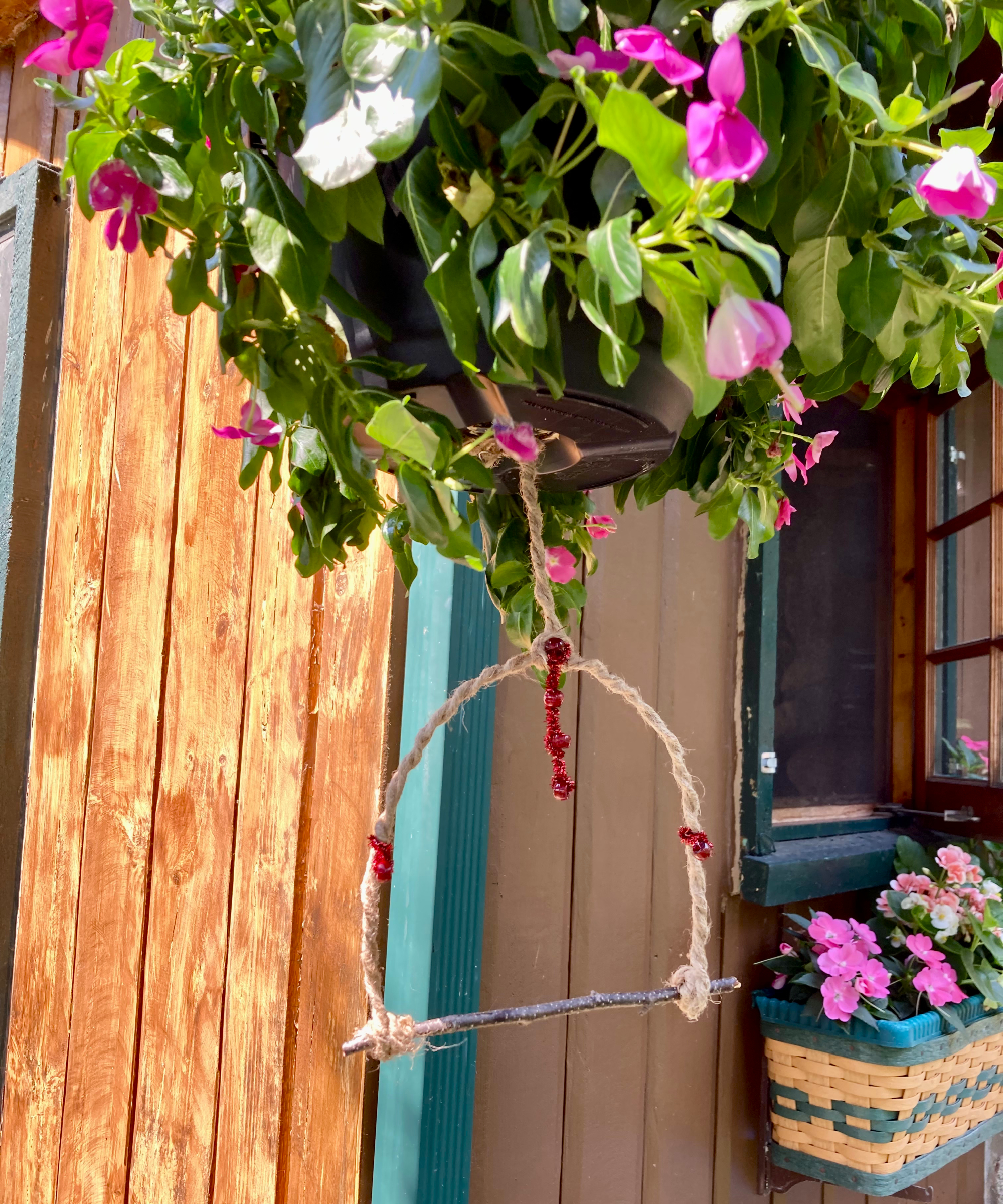
The final step is to hang your DIY hummingbird swing in your garden. Place it around eye level near plants hummingbirds love. I most often notice hummingbirds drinking the nectar from my vincas and impatiens. But many tubular flowers attract hummingbirds as well, like salvia or trumpet vine.
I attached my DIY hummingbird swing to the underside of my vinca plant to create the ultimate hanging baskets for hummingbirds. Now it’s time to sit back and watch as my favorite garden visitors enjoy their new swing.
Shop Hummingbird Swings
There are lots of different hummingbird swings you can put in your backyard or pollinator garden. Here are three of the cutest ones I found.
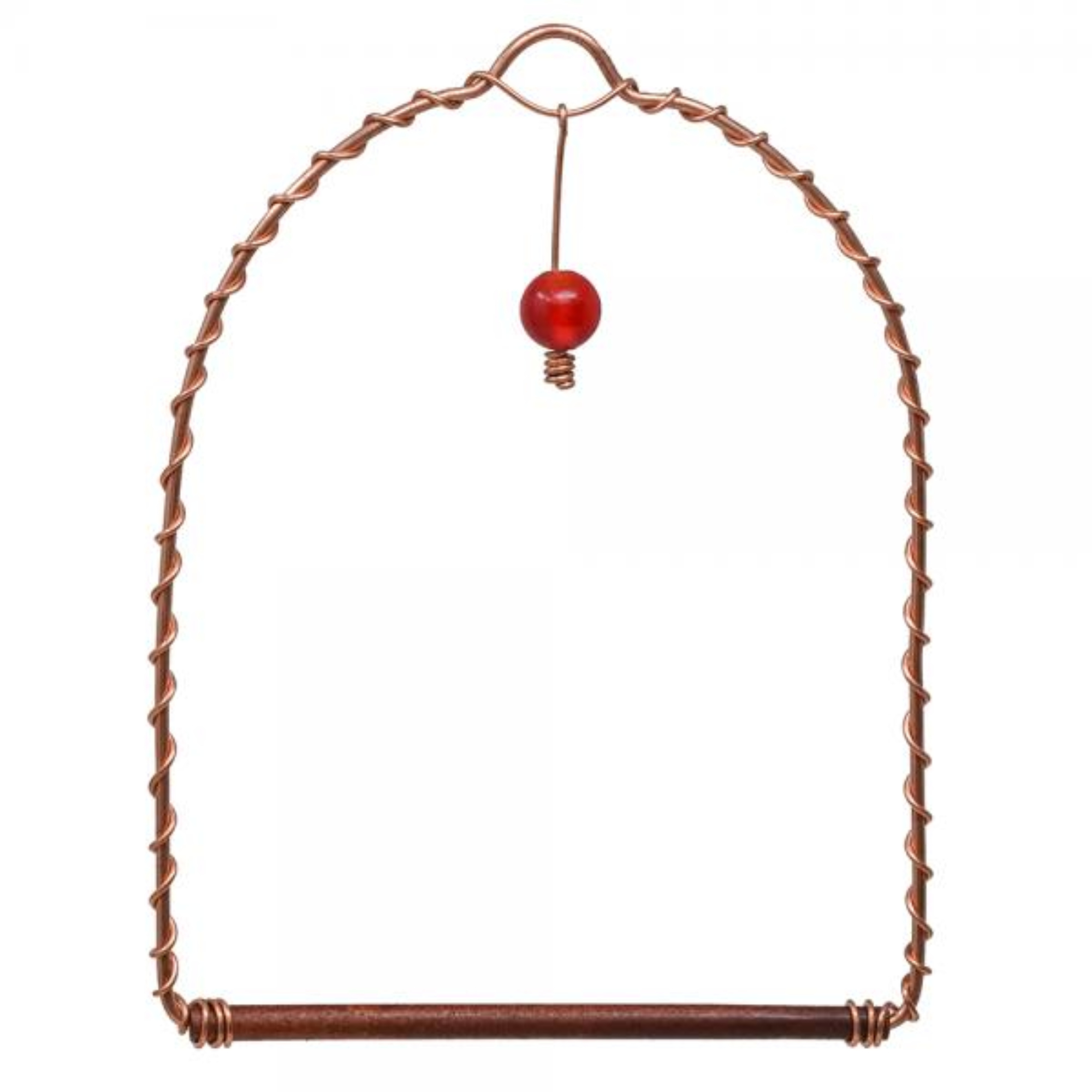
Want that handmade look without the work? This artsy hummingbird swing is just the thing. Made with twisted copper wire and a dangling glass-blown bead in hummingbirds’ favorite shade of red, this swing will add quirky charm to your garden—and plenty of pretty pollinators! Just check out all the photos of hummingbirds perched on this swing from the hundreds of happy reviewers.
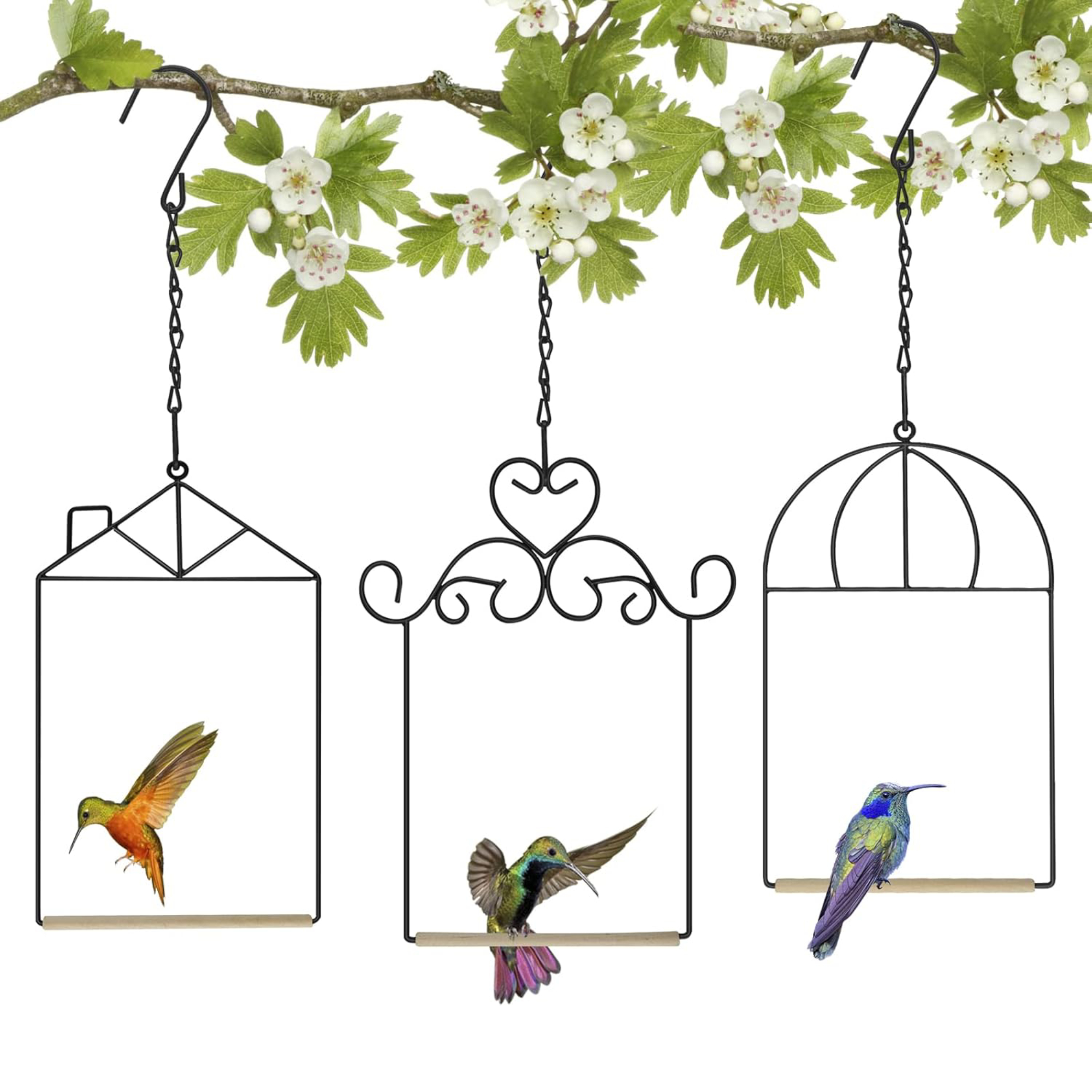
This 3-pack includes a variety of different designs, including one that looks like a little house. They’re easy to hang because they come with chains and hooks. Just pop these hummingbird swings near some favorite hummingbird plants and wait for the birds to flock.
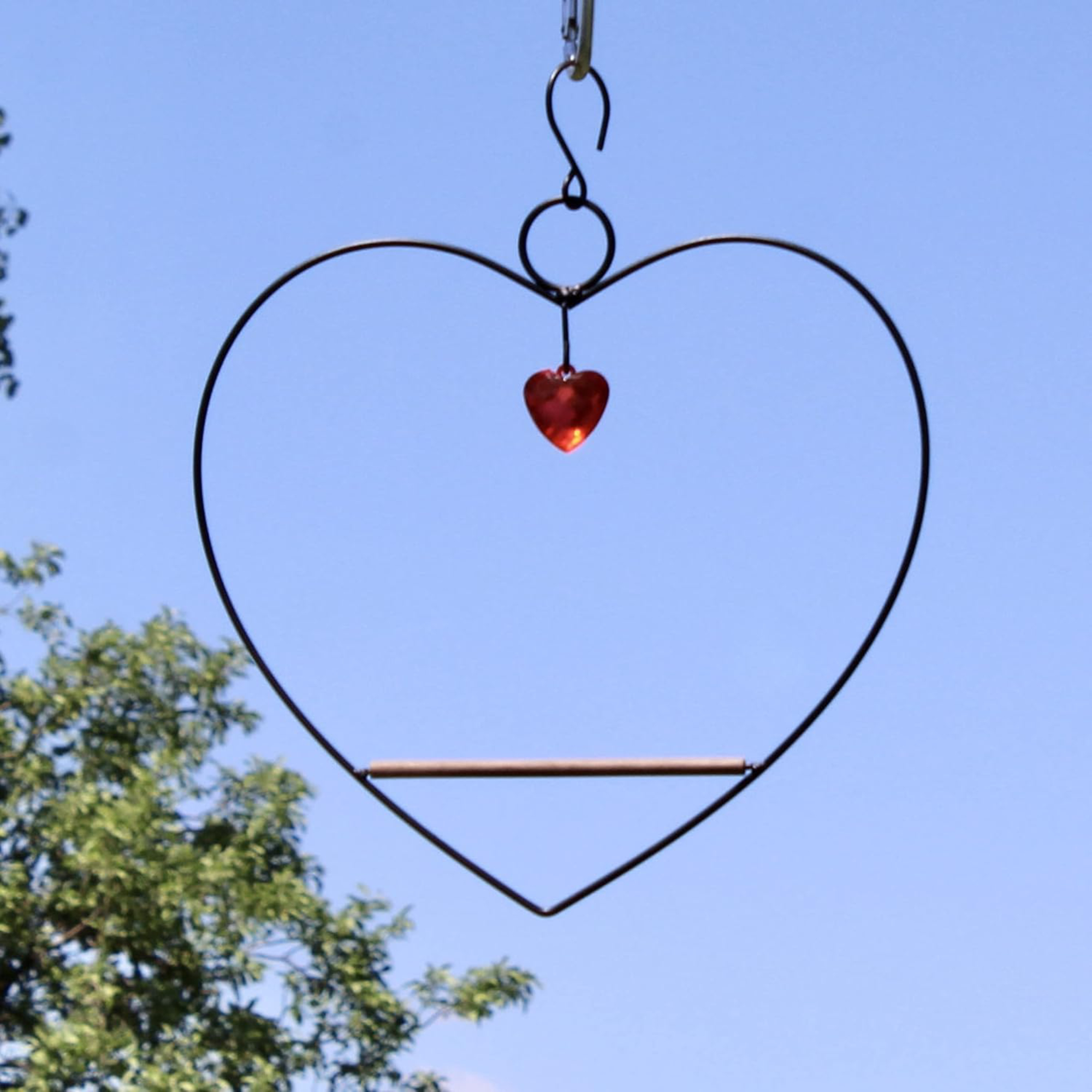
Show the hummingbirds in your garden some love with this heart-shaped swing. They’ll adore the red heart bead hanging just above their perch. Made with black powder coated metal and durable resin that looks like wood, this hummingbird swing won’t rust or rot.

Laura Walters is a Content Editor who joined Gardening Know How in 2021. With a BFA in Electronic Media from the University of Cincinnati, a certificate in Writing for Television from UCLA, and a background in documentary filmmaking and local news, Laura loves providing gardeners with all the know how they need to succeed, in an easy and entertaining format. Laura lives in Southwest Ohio, where she's been gardening for ten years, and she spends her summers on a lake in Northern Michigan. It’s hard to leave her perennial garden at home, but she has a rustic (aka overcrowded) vegetable patch on a piece of land up north. She never thought when she was growing vegetables in her college dorm room, that one day she would get paid to read and write about her favorite hobby.